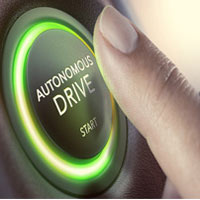Work Zones and Self-Driving Cars
February 12, 2019 Despite the fatal incident involving a female pedestrian in Arizona just last year, Pennsylvania’s legislature is now allowing Uber Technologies to test its self-driving vehicles on public roadways in Pittsburgh. Although the state has created stringent rules for Uber to abide by this time around, the pedestrian’s death, as well as some other points of concern, indicates that autonomous vehicles are not yet entirely safe for the public.
Despite the fatal incident involving a female pedestrian in Arizona just last year, Pennsylvania’s legislature is now allowing Uber Technologies to test its self-driving vehicles on public roadways in Pittsburgh. Although the state has created stringent rules for Uber to abide by this time around, the pedestrian’s death, as well as some other points of concern, indicates that autonomous vehicles are not yet entirely safe for the public.
What are “Autonomous” Vehicles, or Robot Cars?
Self-driving cars are also known as driverless cars or robotic/robot cars. These automobiles are able to operate without human input, which means their systems are intended to navigate and sense the surrounding physical environment on their own.
Multiple companies that manufacture robotic vehicles claim that their cars are “safer” than human drivers behind the wheel. An important question to ask, however, is whether a technological system should (or even can) be expected to predict – and form safe responses to – human drivers, pedestrians, and bicyclists on the road. Last year’s tragic incident serves as a sobering reminder that there are still safety deficiencies to remain wary of.
Pennsylvania: Uber’s Testing Guidelines
When Uber Technologies tested a fleet of self-driving automobiles in Arizona, the company was allowed to operate at nighttime and in crowded areas. Additionally, the vehicles could top out at high speeds and only had to have one person – or a “back-up driver” – in the vehicle at all times. It is reassuring that in Pennsylvania, the rules are different. Here are some examples of the guidelines for Pittsburgh’s robotic cars:
- Not allowed to exceed 25 miles per hour;
- Cannot be operated at nighttime or in wet and/or slippery conditions;
- Always must have functional automatic braking system enabled;
- Two back-up drivers must be in the front seats, and:
- Temporary suspension of the ability to pick up passengers
According to the head of Uber’s Advanced Technologies Group, the company has made several improvements to its safety programs. Before being tested on the public, the vehicles are supposed to undergo certain protocols, such as passing a series (over 70) of safety testing scenarios without failure. That said, public safety remains a major concern.
The National Transportation Safety Board (NTSB) investigated last year’s deadly accident and discovered that the striking vehicle’s emergency braking system had been deactivated, despite the fact that Uber promised to have it enabled in the test vehicles at all times. The company is saying that these systems will be employed in Pittsburgh’s test fleet – but only time will tell whether or not that is true. Another concern is the newness of autonomous vehicles on the market, which makes it difficult to tell what other dangers the American public may soon be faced with.
Philadelphia Car Accident Lawyers at Galfand Berger, LLP Represent Victims Injured in Automobile Accidents
If you were injured in a car accident and have legal questions, please contact our Philadelphia car accident lawyers at Galfand Berger who can help. With offices located in Philadelphia, Bethlehem, Lancaster, and Reading we serve clients throughout Pennsylvania and New Jersey. To schedule a consultation, call us at 800-222-8792 or complete our online contact form.
 Google Screened
Google Screened
